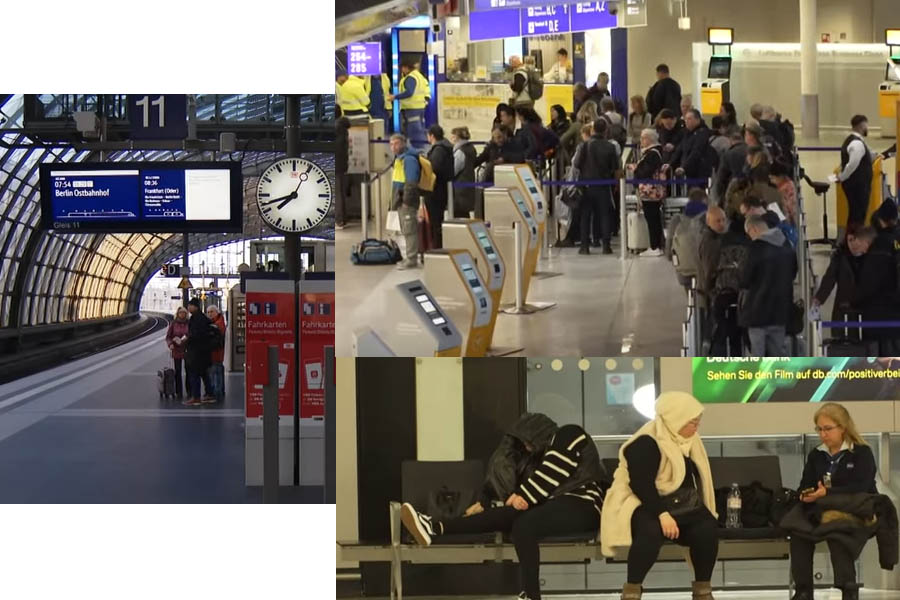
Germany was thrown into chaos on Thursday as a series of strikes paralyzed its transportation systems, leaving millions scrambling to make alternative travel arrangements. The strikes, orchestrated by staff at national airline Lufthansa and rail operator Deutsche Bahn, were fueled by demands for higher pay.
The Impact of the Strikes:
The strikes took a heavy toll on both rail and air travel. Deutsche Bahn's long-distance and regional rail network ground to a halt as train drivers embarked on a 35-hour strike over wage disputes. Simultaneously, ground staff at Lufthansa initiated a two-day strike, severely limiting the airline's operations to just 10% to 20% of its original schedule. Frankfurt and Hamburg airports faced additional disruptions as security staff staged a one-day walkout. The disruptions were expected to last until Saturday, with both rail and air travel services struggling to return to normalcy.
Demands of the Workers:
The German Train Drivers' Union (GDL) demanded a reduction in the working week from 38 to 35 hours for shift workers at Deutsche Bahn, with full wage compensation. This strike marked the fifth in a series of protests stemming from a months-long wage dispute. Similarly, Lufthansa's ground staff, represented by the Verdi union, demanded a 12.5% pay raise or a minimum increase of €500 per month, along with other benefits.
Economic Fallout:
The strikes dealt a severe blow to the German economy, exacerbating its existing struggles. Frankfurt airport alone estimated losses of €1.5 million due to the disruption, with similar impacts felt across other German airports. The German Central Bank warned that the wave of strikes in 2024 was negatively impacting productivity, highlighting the significant economic consequences of labor unrest.
The Way Forward:
As the strikes continued, travelers faced uncertainty and frustration, while businesses counted their losses. Negotiations between unions and management remained deadlocked, with no immediate resolution in sight. The disruptions underscored the need for constructive dialogue and compromise to avert further damage to Germany's vital transportation networks and economy.
In conclusion, the strikes in Germany have underscored the challenges facing the country's transportation sector and economy. As workers continue to demand better wages and conditions, finding a sustainable solution that balances the interests of both employees and employers is essential to prevent further disruptions and foster economic stability.
Message To The Readers:
Transportation Paralysis: Germany faced widespread disruption in rail and air travel due to parallel strikes by Lufthansa ground staff and Deutsche Bahn train drivers. The strikes led to the cancellation of thousands of flights and the suspension of both long-distance and regional train services.
Worker Demands: The strikes were driven by demands for higher pay and improved working conditions. The German Train Drivers' Union (GDL) sought a reduction in the working week without a corresponding pay cut, while Lufthansa's ground staff demanded a significant pay raise and other benefits.
Economic Impact: The strikes inflicted substantial economic losses on Germany, with Frankfurt airport alone estimating losses of €1.5 million. The disruptions affected businesses, travelers, and the broader economy, prompting concerns about the negative impact on productivity and economic stability.
Negotiation Stalemate: Despite ongoing negotiations between unions and management, a resolution remained elusive, prolonging the uncertainty and frustration for travelers and businesses. The strikes highlighted the urgent need for constructive dialogue and compromise to mitigate further disruptions and safeguard the country's vital transportation networks and economy.
Thank you for reading: globalpostheadline.com | If you want to advertise your Company, Events, Movies, Products, Hotels, Travel Packages Let us know